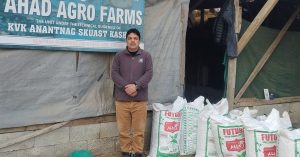Started With Just Rs 36, Odisha Man’s Mushroom Farm Now Earns Lakhs
Looking to set up a mushroom farming business? Unable to afford higher studies, Odisha's Santosh Mishra set up an award-winning mushroom farm that earns Rs 10 lakh annually.
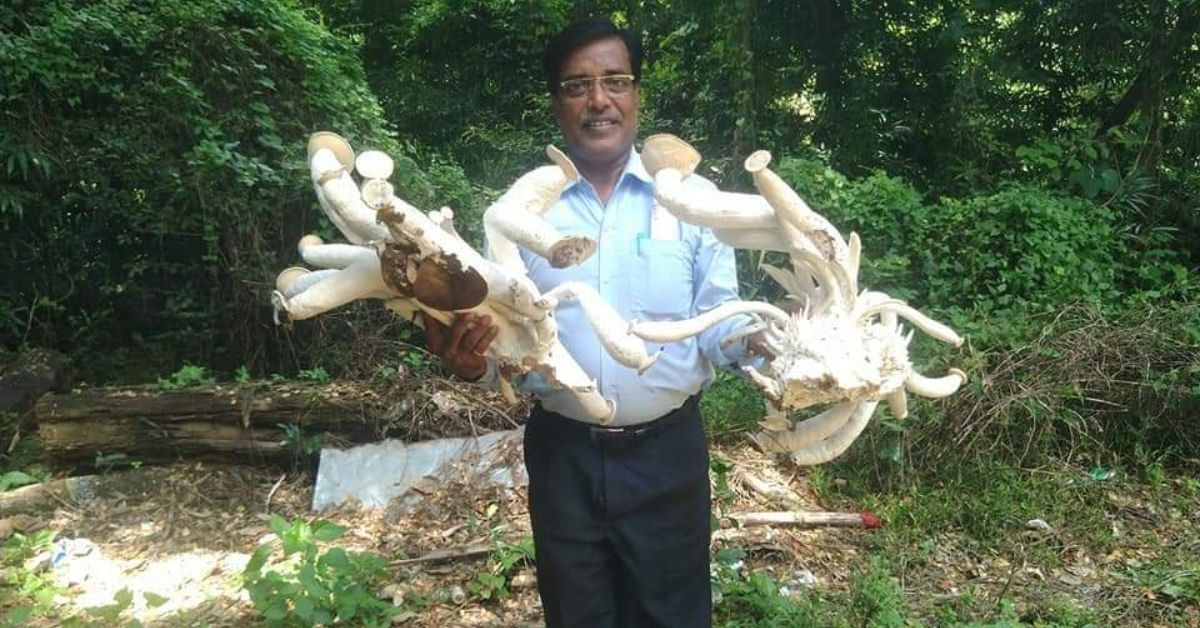
Parked right outside the prestigious BJB College in Odisha, a young man was selling mushrooms in small baskets on the street. This invited resentment from a few students and the professors.
The man was Santosh Mishra, an alumnus of the same college.
Having graduated in rural development in 1988, he wanted to pursue a masters. But without money for further studies, he turned to cultivating mushrooms. That day, he was questioned about his abilities.
“At the college, I was known for my academic excellence, singing, and sports. When people saw me selling mushrooms on the street, they objected and asked what I was doing. That day, people mocked me but I decided that one day, they would recognise me for this work and I would make the state proud with it,” Santosh, now 56, tells The Better India.
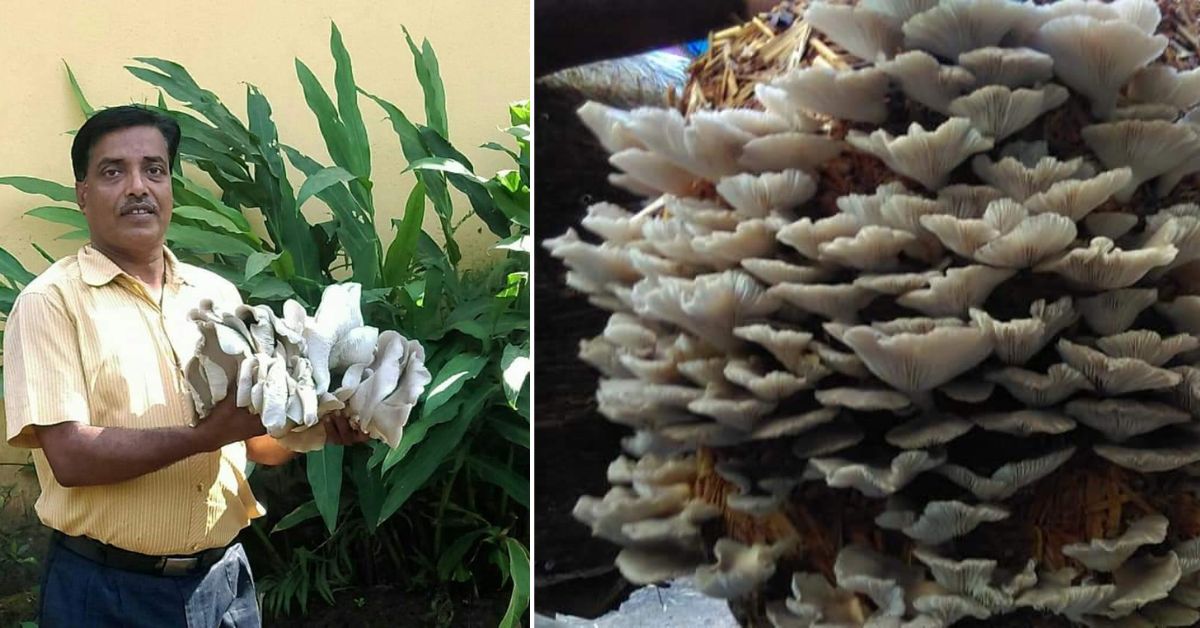
Today, Santosh is a proud mushroom farmer who has won several accolades for his work like receiving a state award in 2005, a national-level award from the Indian Council for Agricultural Research (ICAR) in 2011, the Global Agriculture Award at the Gujarat Summit in 2013, and the Odisha Citizen Award in 2019.
First harvest: Three pieces of mushrooms
Raised along with four siblings by a primary school teacher, Santosh had to quit his dreams of higher education due to financial constraints. For a brief period, he worked as a manager where he says he was forced to bring tea for his juniors and sweep the floors.
An upset Santosh remembered a scientist who visited his village and showcased the profitable cultivation of mushrooms. So, he decided to take up mushroom cultivation thereafter.
In 1989, Santosh attended a mushroom farming training programme at the Odisha University of Agriculture & Technology (OUAT) in Bhubaneswar. With Rs 36 in his pocket, he bought four bottles of mushroom spawn and began his entrepreneurial journey. “Over monetary investment, my key investment was mental courage,” says the Dandamukundapur resident of Puri district.
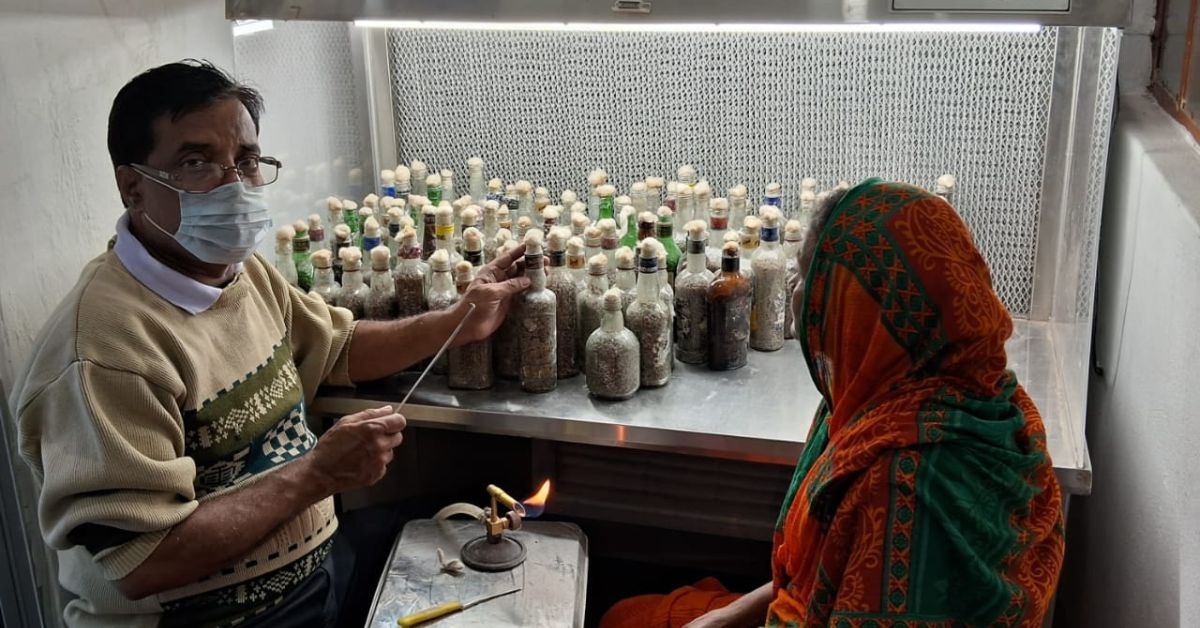
Sadly, he could only get three pieces of mushrooms in contrast to the promised 4 kg produce. “I was disheartened but I focused on understanding the mistake. I understood that as I did not sterilise either the soil or my hands before preparing the mushroom bed, I got a very poor yield. Sterilisation comprises the main component of mushroom cultivation. With trial and error, now I get up to 7 kgs from one bed,” he adds.
Today, Santosh has set up a spawn production-cum-training centre in his village. Every day, he is able to produce 2,000 bottles of spawn. His produce is not only sold across Odisha but also in West Bengal, Chhattisgarh, Assam, and Puducherry. With this, he earns at least Rs 10 lakh annually.
Santosh shares that he is setting up a Rs 2 crore processing plant to process mushrooms into value-added products like pickles, biscuits, papad, soup powder, and even noodles!
Cultivating uncommon & colourful mushrooms
Unlike the common button variety of mushroom, Santosh cultivates spawns of two varieties: oyster mushroom and paddy straw mushroom.
Explaining the advantage over button variety, he says, “Compared to button mushrooms, we grow paddy variety as it costs us Rs 100 to cultivate 1 kg of paddy variety. Whereas there are additional expenses in button mushrooms that require central air conditioning, humidifiers, and a large space.”
“Other than this, we have favourable climatic conditions to cultivate paddy variety. This variety requires a temperature of 23-30 degrees and 90 percent humidity. We directly grow it in the open under coconut trees unlike button mushrooms that require shade. Also, it takes only 15 days to grow,” he adds.
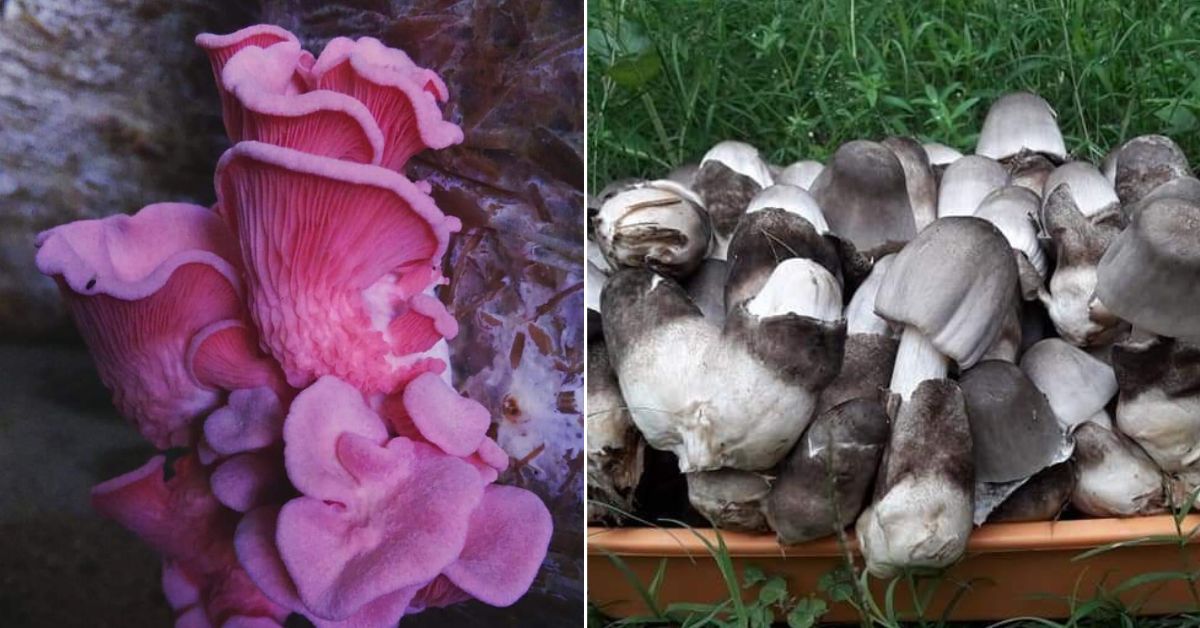
Interestingly, Santosh grows mushrooms in a wide range of colours, not just white!
“In 2000, I collected pink, blue, white, and grey coloured spawns from a research institute in Solan. These are also edible and are priced at the same rate. We get a lot of visitors to tour inside our colourful mushroom baagh (garden),” he says with pride.
Fighting the annual disasters
Before reaping profits, Santosh has borne numerous hardships, one of them being natural calamities. “It is not unknown that every year, Odisha is hit by cyclones. This brings us a huge financial cost. The 1999 super cyclone had turned my mushroom production centre into debris. By 2019, we were able to manage a monthly income of Rs 30,000. But the Fani cyclone (considered the worst tropical cyclone post the 1999 super cyclone) destroyed my centre. I have witnessed eight cyclones devastate all my hard work. After every cyclone, we have to kick off the work again from scratch. I had to even mortgage my wife’s jewellery to restart work,” he adds.
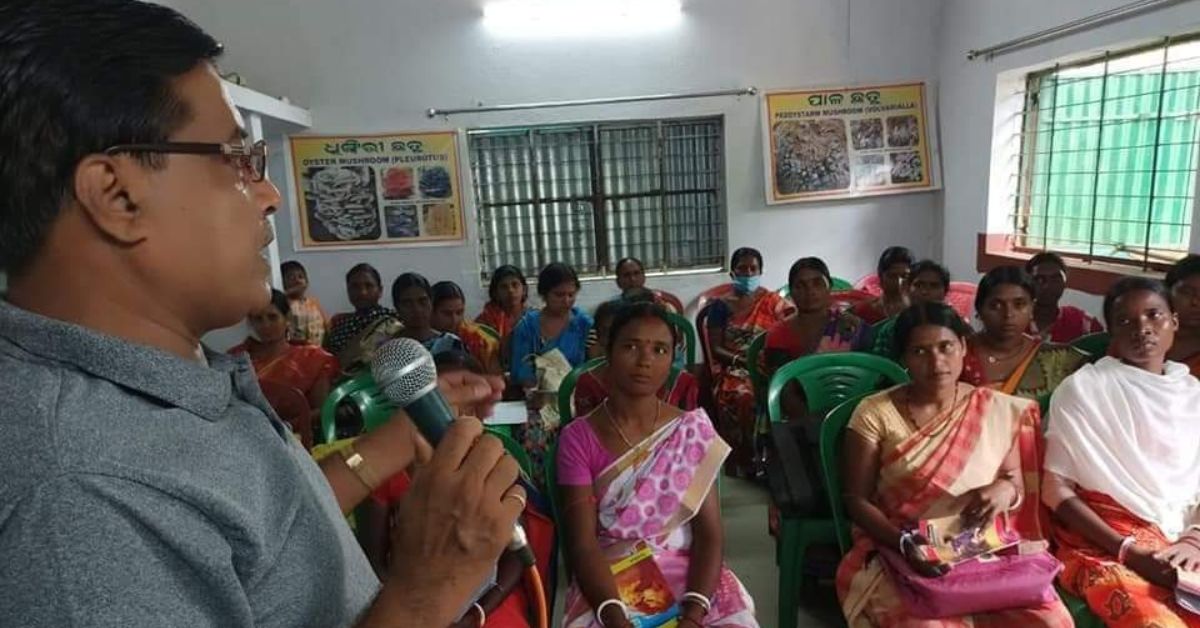
From the initial centre built using coconut leaves, a tin shed, and a thatched roof, Santosh has now established a 3,000 sq ft concrete cyclone-resistant structure comprising a training hall, incubation chamber, and by-product processing unit.
Meanwhile, Santosh says, he has also trained about 10,000 women from low socio-economic backgrounds under the Odisha government’s Mission Shakti for free. Other than women, a large number of working professionals and college students from Andhra Pradesh, Assam, Chhattisgarh, Jharkhand, Kerala, Maharashtra, Tamil Nadu, and Uttar Pradesh reach out to him for training. If you found our stories insightful, informative, or even just enjoyable, we invite you to consider making a voluntary payment to support the work we do at The Better India. Your contribution helps us continue producing quality content that educates, inspires, and drives positive change. Choose one of the payment options below for your contribution- By paying for the stories you value, you directly contribute to sustaining our efforts focused on making a difference in the world. Together, let’s ensure that impactful stories continue to be told and shared, enriching lives and communities alike. Thank you for your support. Here are some frequently asked questions you might find helpful to know why you are contributing?

Talking about the impact of his work, Santosh says, “There has not been a single day in my life that I did not dedicate myself to the service of others and make my state proud with my work. At least in the last moments of my life, I will be extremely gratified to know that.”
Edited by Padmashree Pande. All photos: Santosh Mishra
This story made me
- 97
- 121
- 89
- 167





